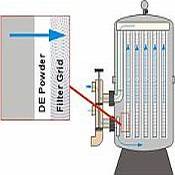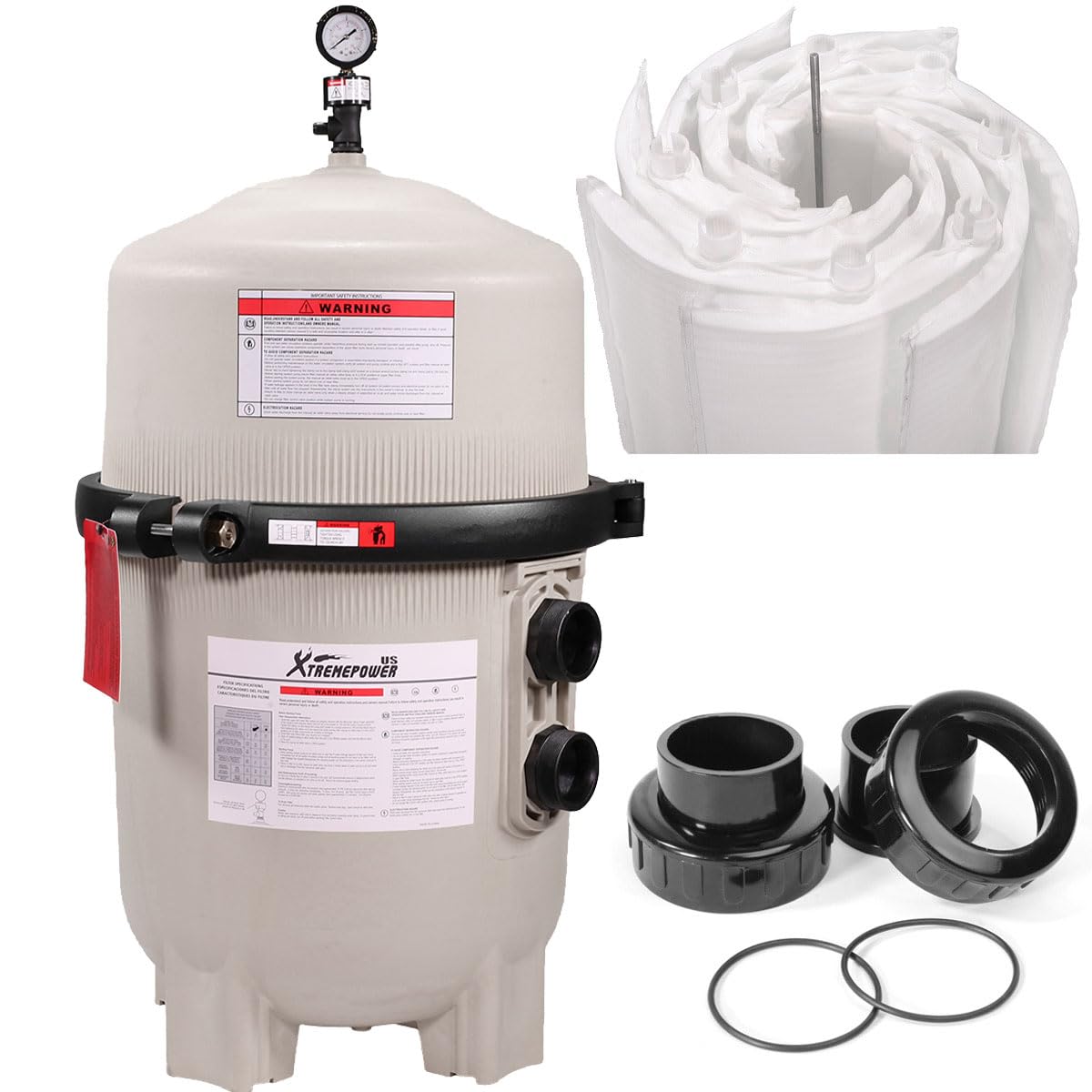How Diatomaceous Earth Filtering Improves Water Clarity and Purity
How Diatomaceous Earth Filtering Improves Water Clarity and Purity
Blog Article
Opening the Advantages of Diatomaceous Earth Filtering for Pure and Tidy Water
The exploration of diatomaceous planet (DE) filtering system presents an engaging alternative for those looking for sustainable and effective water filtration techniques. As the need for clean water continues to rise worldwide, recognizing the diverse applications and advantages of DE filters may reveal essential insights for both house and industrial use.
What Is Diatomaceous Earth?
Diatomaceous earth, frequently referred to as DE, is a normally happening stratified rock made up mostly of the fossilized remains of little, aquatic organisms referred to as diatoms. These single-celled algae are abundant in silica, which is the primary component of DE. The special framework of diatomaceous planet includes tiny, porous fragments that supply a high surface area, making it an effective filtering system tool.
DE is normally collected from ancient lake beds and down payments, which have accumulated over countless years. It looks like a fine, white to beige powder, and its chemical structure primarily consists of silicon dioxide, together with trace amounts of different minerals. This composition is what offers DE its remarkable buildings.
Along with its application in water filtration, diatomaceous planet is utilized in a selection of sectors, including agriculture, food storage space, and pest control. Its capability to take in wetness and its abrasive qualities make it an important source in these areas. On the whole, diatomaceous earth attracts attention as an environmentally friendly option for numerous applications due to its natural beginning and effectiveness in filtering procedures.

How Diatomaceous Planet Filtering Functions

When water passes via a diatomaceous planet filter, the great bits are caught in the complex network of small pores. The shapes and size of these pores are essential, as they are created to target specific impurities while permitting tidy water to stream via. As water relocations with the filter tool, the mechanical action of the diatomaceous earth records bigger particles, while smaller contaminants are taken in or physically blocked.
Moreover, the surface area supplied by diatomaceous earth is substantial, enhancing its capability to hold contaminations. This leads to a steady accumulation of trapped bits, which can be regularly gotten rid of through a backwashing process. This approach guarantees constant purification efficiency and adds to the general performance of preserving pure and tidy water.
Advantages Over Typical Purification
When comparing diatomaceous earth filtering to typical filtration methods, several benefits arise that enhance water filtration effectiveness. Among the primary benefits is the exceptional filtration ability of diatomaceous earth try this out (DE), which can remove smaller fragments and impurities that traditional filters might miss. The microscopic framework of DE enables it to catch contaminants, including bacteria and protozoa, resulting in cleaner water.
Furthermore, diatomaceous planet filters often tend to have a longer lifespan than traditional media, minimizing the regularity of substitute and maintenance. This durability not only lowers functional costs yet also decreases waste, adding to more sustainable techniques. DE filters likewise operate at lower pressure, which can cause power savings in large-scale applications.
An additional considerable benefit is the versatility of diatomaceous earth. It can be made use of effectively in various contexts, from metropolitan water treatment centers to specialized industrial applications (diatomaceous earth filtering). The natural make-up of DE makes it an eco-friendly option, without unsafe chemicals and resource contaminants commonly related to synthetic filtration systems
Applications in Family and Market
Countless applications of diatomaceous earth filtering system can be located in both house and commercial setups, highlighting its flexibility and performance in water purification. In household environments, diatomaceous earth (DE) filters are frequently used in pool, efficiently capturing particles and microbes, thereby preserving water clarity and health. Furthermore, lots of homes utilize DE in home water filtration systems, where it offers to get rid of contaminations, debris, and unsafe pathogens, ensuring safe alcohol consumption water.
In industrial applications, diatomaceous planet filtering system is important to different industries, including food and beverage manufacturing, drugs, and wastewater treatment. In the food sector, DE is utilized in the filtration of beer and red wine, helping with the elimination of yeast and other particulates while protecting the beverage's taste profile. In wastewater therapy facilities, DE filters play a critical duty in improving water high quality by trapping contaminants and promoting the recycling of water resources.
The performance of diatomaceous earth in both house and commercial applications highlights its indispensable duty in advertising clean water access, adding to public health and wellness, and supporting lasting practices.

Selecting the Right DE Filter
Choosing the proper diatomaceous planet (DE) filter is essential for making certain optimum water purification, whether for industrial additional info or residential use. diatomaceous earth filtering. The option of a DE filter depends on numerous crucial aspects, including the certain application, circulation price requirements, and the desired level of purification
First, analyze the quantity of water to be filtered. For property use, smaller sized filters are enough, while commercial applications may demand larger, high-capacity systems. Next, take into consideration the circulation price; it is important to pick a filter that can handle the called for throughput without endangering water top quality.
Additionally, evaluate the filtering degree; DE filters been available in various grades, influencing the elimination of pollutants and particulates. For instance, higher-grade filters are ideal for applications requiring rigorous purity levels.
Lastly, think about the maintenance demands and the schedule of substitute DE powder. Filters that are less complicated to preserve and have conveniently available materials will minimize downtime and functional expenses. By carefully thinking about these elements, one can select a DE filter that fulfills specific demands, making certain the shipment of tidy and risk-free water.
Conclusion
In summary, diatomaceous planet filtering system stands for a significant improvement in water filtration innovation, offering enhanced effectiveness and efficiency in capturing contaminations. Embracing diatomaceous earth filtering can lead to boosted public health results and better access to clean water.
The exploration of diatomaceous planet (DE) filtering offers a compelling choice for those seeking effective and sustainable water filtration methods.When comparing diatomaceous earth filtering system to conventional filtering methods, several advantages arise that improve water purification efficiency.Countless applications of diatomaceous earth filtering can be found in both home and industrial settings, highlighting its versatility and efficiency in water filtration. In residential settings, diatomaceous planet (DE) filters are generally employed in swimming pools, effectively capturing debris and microbes, thereby keeping water quality and health. In wastewater therapy facilities, DE filters play a critical role in boosting water quality by trapping pollutants and facilitating the recycling of water resources.
Report this page